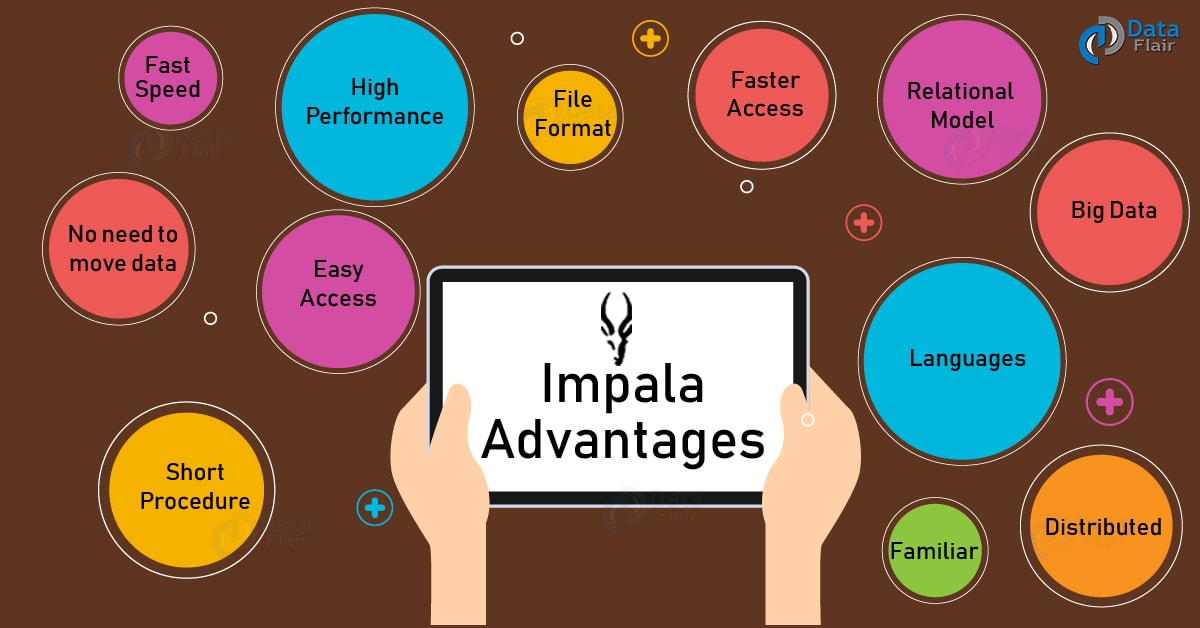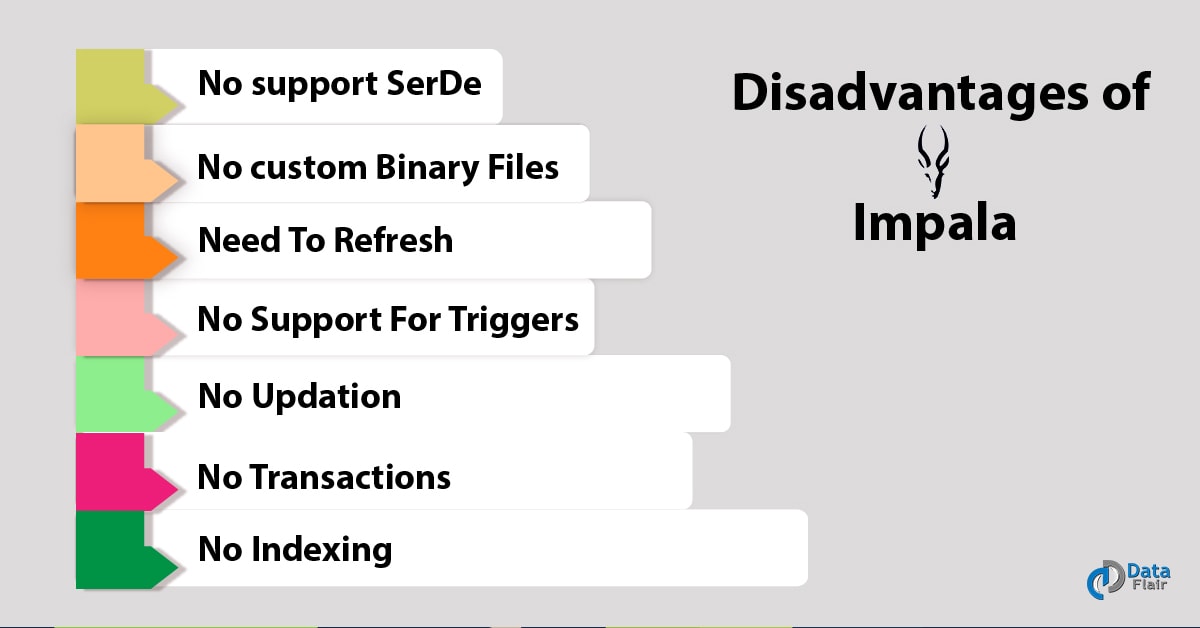Pros and Cons of Impala | Impala Limitations and Features
As we know, Impala is the highest performing SQL engine. Also, the fastest way to access data that is stored in Hadoop Distributed File System. Still, there are many more advantages to Impala.
Well apart from advantages, it also attains some limitations. So, in this article, Pros, and Cons of Impala, we will discuss all Pros and Cons of Impala. However, before that, we will discuss Introduction of Impala to understand it well.
Introducing Apache Impala
Basically, Impala is the highest performing SQL engine. Also, the fastest way to access data that is stored in Hadoop Distributed File System. It offers a familiar and unified platform for real-time or batch-oriented queries.
Also, very important to note that Impala graduated from the Apache Incubator on November 15, 2017. Well, the documentation formerly referred to “Cloudera Impala”. However, the official name is “Apache Impala” now.
Impala Advantages & Disadvantages
a. Advantages of Impala
There are several advantages of Cloudera Impala. So, here is a list of those advantages.
i. Fast Speed
Basically, we can process data that is stored in HDFS at lightning-fast speed with traditional SQL knowledge, by using Impala.
ii. No need to Move Data
However, while working with Impala, we don’t need data transformation and data movement for data stored on Hadoop. Even if the data processing is carried where the data resides (on Hadoop cluster),
iii. Easy Access
Also, we can access the data that is stored in HDFS, HBase, and Amazon s3 without the knowledge of Java (MapReduce jobs), by using Imala. That implies we can access them with a basic idea of SQL queries.
iv. Short Procedure
Basically, while we write queries in business tools, the data has to be gone through a complicated extract-transform-load (ETL) cycle. However, this procedure is shortened with Impala.
Moreover, with the new techniques, time-consuming stages of loading & reorganizing is resolved. Like, exploratory data analysis & data discovery making the process faster.
v. File Format
However, for large-scale queries typical in data warehouse scenarios, Impala is pioneering the use of the Parquet file format, a columnar storage layout. Basically, that is very optimized for it.
vi. Big Data
We can store and manage large amounts of data (petabytes) by using Impala.
vii. Relational model
Impala follows the Relational model.
viii. Languages
Moreover, it supports all languages supporting JDBC/ODBC.
Ix. Familiar
Imala offers familiar SQL interface that data scientists and analysts already know.
x. Distributed
Basically, for convenient scaling and to make use of cost-effective commodity hardware, there is a distributed query in a cluster environment.
xi. Faster Access
While we compare Impala to another SQL engines, Impala offers faster access to the data in HDFS.
xii. High Performance
While we compare Impala to another SQL engines, Impala offers high performance and low latency for Hadoop.
B. Disadvantages of Impala
Following are the disadvantages of Impala, let’s discuss them one by one:
i. No Support SerDe
There is no support for Serialization and Deserialization in Impala.
ii. No custom Binary Files
Basically, we cannot read custom binary files in Impala. It only read text files.
iii. Need to Refresh
However, we need to refresh the tables always, when we add new records/ files to the data directory in HDFS.
iv. No Support for Triggers
Also, it does not provide any support for triggers.
v. No Updation
In Impala, We cannot update or delete individual records.
vi. No Transactions
Also, there is no support for transactions in Impala.
vii. No Indexing
Moreover, there is no support for indexing in Impala.
So, this was all on Pros and Cons of Impala. Hope you like our explanation.
Conclusion
As a result, we have seen all the Pros and Cons of Impala. Still, if any query occurs feel free to ask in the comment section.
You give me 15 seconds I promise you best tutorials
Please share your happy experience on Google



